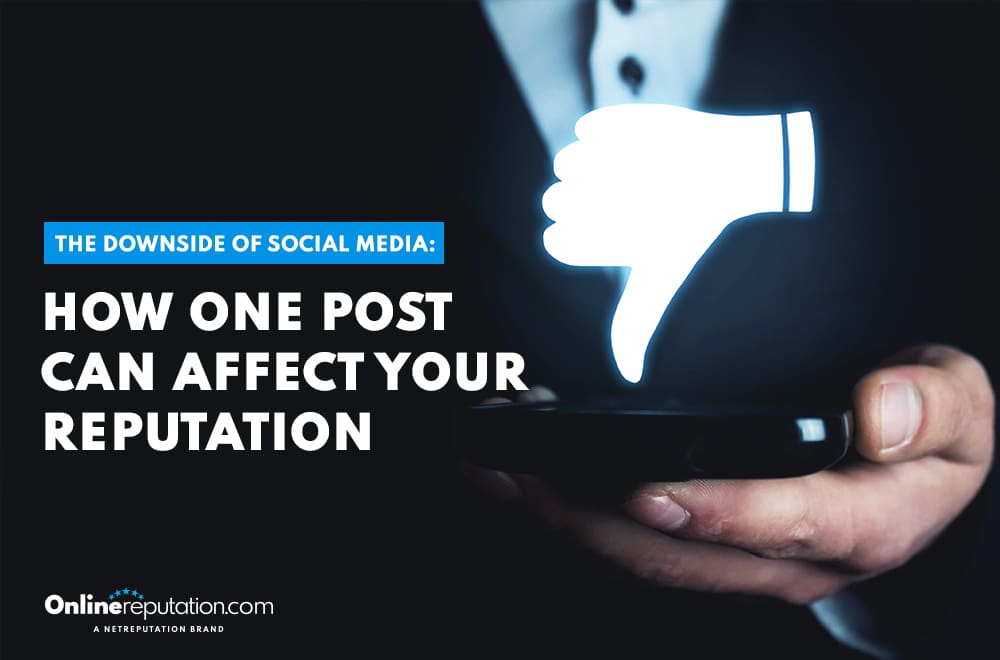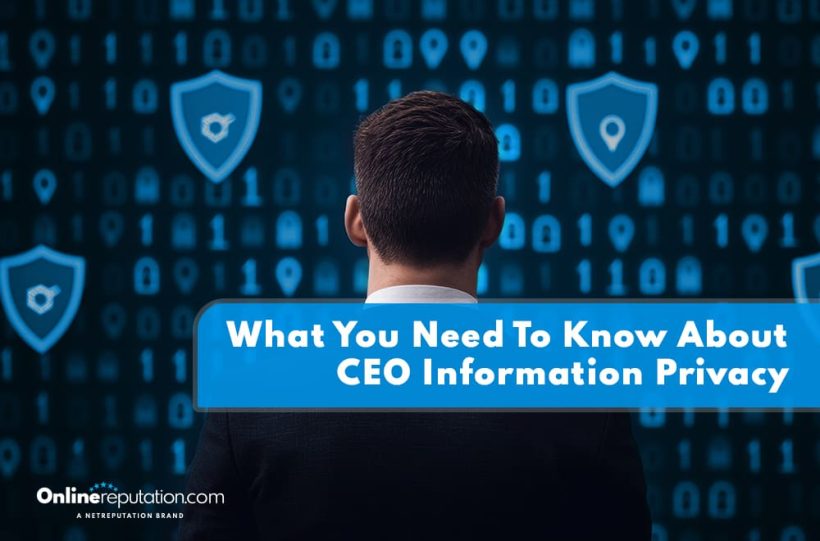
Social media has become essential to modern life, offering powerful ways to connect, express opinions, and engage with others. However, the very platforms that allow us to share our thoughts and experiences can also pose significant risks to our reputation.
The spread of fake news can also damage personal and professional relationships, as misleading information can lead to misunderstandings and conflicts. A single post, if misinterpreted or poorly timed, can damage personal and professional relationships.
The Impact of Social Media on Reputation
Social media has reshaped how we interact with others and how businesses engage with customers. Platforms like Facebook, Twitter, and Instagram can either strengthen or harm your reputation, depending on how they’re used. The behaviors of social media users can significantly influence reputation, as their interactions and posts can lead to positive and negative perceptions. These platforms’ immediacy and broad reach mean that a single post’s positive or negative consequences can be far-reaching.
Maintaining a positive online reputation is crucial. Your reputation affects how others perceive you, influences your relationships, and plays a role in business growth. As experts in online reputation management (ORM) have noted, the role of social media in shaping your reputation cannot be underestimated, especially when things go wrong. Social media’s dual nature offers both benefits, such as enhanced communication and connections, and drawbacks, including exploitation, addiction, and negative mental health effects.
What Are the Risks of Posting on Social Media?
While social media sites can offer great opportunities for engagement, they also pose significant risks, such as exploitation and fraud. Scammers often use these platforms to deceive users, making it essential for individuals to be vigilant against various scams, including phishing and fraudulent advertisements. A single misstep can lead to negative feedback, public backlash, and even long-lasting damage to your personal or business reputation. It’s crucial to understand the risks associated with posting online, including:
- Misinterpretation of Posts: A post that is meant to be lighthearted or neutral can be misinterpreted by others, leading to misunderstandings and negative comments.
- Cyberbullying: When social media platforms aren’t moderated, bullying can occur, affecting both individuals and brands.
- Damage to Relationships: Public exchanges on social media can escalate quickly and harm personal and professional relationships.
- Legal Consequences: Inappropriate content can lead to legal challenges, from defamation claims to copyright infringements.
- Privacy Concerns: Sharing personal information on social media can lead to privacy concerns, including the risk of inadequate security measures and the potential exploitation of personal data.
Misinterpretation of Posts
One of the biggest risks of posting on social media is how easily your message can be misunderstood. What may seem like an innocent post can quickly spiral into a reputational crisis if it’s interpreted in a negative light. For example, a well-known coffee brand faced significant backlash after posting an insensitive promotional image during a social justice movement.
Misinterpreted posts can also contribute to spreading fake news, where false information disseminates more quickly than verified facts, negatively impacting public decision-making in areas such as health, finances, and consumer choices.
The rapid spread of information on social media means that missteps can go viral and impact public perception almost instantly. To avoid this, brands and individuals should:
- Review posts carefully before publishing.
- Consider the potential audience reactions.
- Be open to feedback and use it to improve future communications.
Cyberbullying and Its Impact on Mental Health
Cyberbullying is a serious issue that can affect both individuals and brands. When a brand fails to address instances of bullying effectively, it risks alienating its audience and damaging its reputation. For example, a major corporation saw a decline in customer loyalty after neglecting to address cyberbullying on its platform.
Additionally, social media marketers can sometimes engage in misleading practices that contribute to a toxic online environment. These marketers often resort to dishonest strategies, such as using fake reviews and false promises, to promote products and services.
To protect your reputation, it’s essential to:
- Adopt proactive moderation strategies.
- Respond quickly and openly to allegations of bullying.
- Foster a positive, supportive environment for your online community.
Damage to Personal and Professional Relationships
Social media interactions are public, meaning even minor disagreements can escalate and damage both personal and professional relationships. The immediacy of social media makes it easy for small issues to snowball into public dramas. However, social support from online communities can help mitigate the damage to relationships by providing a network of understanding and empathy.
To protect your relationships, consider these strategies:
- Respond thoughtfully to comments and messages.
- Always maintain professionalism in online interactions.
- Regularly monitor your online presence to prevent issues from escalating. Community building on social media can also foster positive interactions, creating a more supportive and collaborative environment.
Legal Consequences and Privacy Concerns
Social media also has significant legal implications. Inappropriate posts, misleading ads, or misrepresentation can lead to lawsuits and regulatory scrutiny. A famous beverage brand, for example, was sued for using a song in an ad without permission. Similarly, a fashion retailer faced penalties for failing to disclose sponsored content.
To avoid legal issues, ensure that:
- Your content is compliant with advertising regulations.
- You have the proper permissions for any media you use.
- You handle customer complaints responsibly to avoid defamation claims.
- You comply with regulations related to targeted advertising to avoid potential legal consequences.
The Dark Side of Social Media
Social media has become an integral part of our daily lives, with billions of people around the world using social media platforms to connect with others, share their experiences, and consume information.
However, beneath the surface of social media’s benefits lies a dark side that can have serious consequences for individuals, communities, and society as a whole.
Social Media Addiction
Social media addiction is a growing concern that affects millions of people worldwide. Social media companies use various tactics to keep users engaged, including infinite scrolling, personalized algorithms, and notifications that activate the brain’s reward system. These tactics can lead to compulsive behavior, as users feel an intense urge to constantly check their social media accounts, even when it negatively impacts their mental and physical health.
Research has shown that social media addiction can have serious consequences, including decreased attention span, increased stress levels, and decreased face-to-face communication skills. Moreover, social media addiction can also lead to decreased productivity, as users spend more time scrolling through their feeds than focusing on work or other important tasks.
Mental Health Risks
Social media use has been linked to various mental health risks, including depression, anxiety, and loneliness. Cyberbullying, online harassment, and the constant comparison to others’ curated online profiles can all take a toll on a person’s mental health. Moreover, the constant stream of information on social media can be overwhelming, leading to feelings of anxiety and stress.
Furthermore, social media can also perpetuate unrealistic beauty standards, body image issues, and risk-taking behaviors. Social media platforms often present unrealistic and unattainable beauty standards, leading to body dissatisfaction and low self-esteem. Additionally, social media can also encourage risk-taking behaviors, such as substance abuse and reckless driving, as users seek to present a certain image or gain likes and followers.
Overall, the dark side of social media is a complex issue that requires attention and action from individuals, communities, and social media companies. By being aware of the potential risks and taking steps to mitigate them, we can promote healthier social media use and create a more positive online environment.
How One Post Can Affect Your Reputation
The combined impact of the internet and social media means that a single post can change the course of your reputation, either positively or negatively. For example, viral posts can increase visibility and engagement, but they can also spark controversy if not handled well. The key is to be strategic with what you post and how you engage with your audience.
Viral Posts
Viral content can significantly elevate your reputation if it resonates with your audience. Successful campaigns, like the “Ice Bucket Challenge,” raised awareness for ALS and showcased the brand’s commitment to social causes. However, not all viral posts are positive—negative content can also spread quickly, damaging your reputation.
Young people are particularly influenced by viral content, which can impact their behavior both positively and negatively.
To harness the power of viral posts, try:
- Creating content that tells a compelling story.
- Encouraging your audience to share their own experiences.
- Responding to viral trends with sensitivity and authenticity.
Negative Comments and Reactions
Negative comments on social media can harm your reputation if not addressed properly. However, how you handle these comments can either restore trust or make the situation worse. Acknowledging negative feedback quickly and with empathy can demonstrate your commitment to improvement. Additionally, negative comments can significantly impact individuals’ perceptions of their own bodies, leading to decreased body acceptance and an unhealthy obsession with appearance.
Best practices for managing negative feedback include:
- Responding promptly to show you care.
- Demonstrating empathy when addressing complaints.
- Moving private conversations to direct messages when appropriate.
Inappropriate Content
Social media sites can be a breeding ground for inappropriate content, making it essential for brands to be vigilant against such posts to protect their reputation. Sharing inappropriate content can result in backlash and damage a brand’s reputation. Brands must ensure that all posts align with their values and respect their audience’s sensibilities. For example, a major brand faced criticism for an ad campaign perceived as culturally insensitive.
To avoid such issues, implement a content review process that aligns with your brand’s values and audience expectations.
What to Do if Your Reputation Is Affected by a Social Media Post
If a social media post harms your reputation, it’s crucial to act swiftly. Start by acknowledging the issue and responding thoughtfully to address any concerns. Taking proactive steps to prevent similar problems in the future is essential.
Social media marketers have a vital role in managing and restoring your reputation by addressing misleading marketing practices and ensuring honest communication. By apologizing and directly addressing concerns, you can help rebuild trust and restore your reputation effectively.
You might also like
The Complete Process to List a Business on Google in Minutes
Social media has become essential to modern life, offering powerful ways to connect, express opinions, and engage with others. However, …
